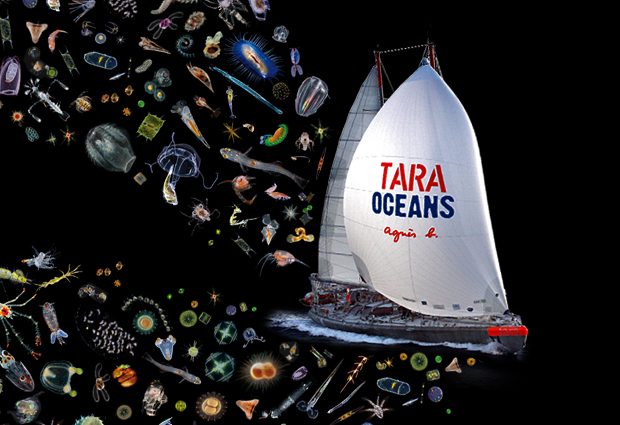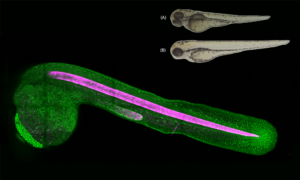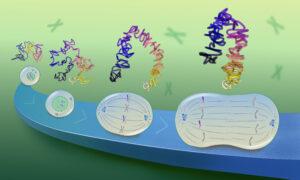Oceans endeavour charts 40 million genes
Sailing boat expedition reveals new insights into climate change, and discovers a treasure trove of novel species and genes.

An international expedition that has combed the world’s oceans for new information about the mysterious plankton ecosystems at the base of the marine food chain is reporting its first findings on the 22 May 2015 in a special issue of Science. Scientists from EMBL are at the heart of this ambitious scientific adventure, during which 35 000 samples were gathered in sea voyage lasting more than three years and covering some 140 000 km.
A wealth of information is already emerging from analysis of the samples. So far 600 of the samples have been analysed, revealing tens of thousands of new eukaryotic species, along with 40 million mostly novel genes from the viruses, bacteria and single-celled creatures that were collected. “Compared to the 24 000 genes in the human body, the mapping of 40 million genes across an entire ecosystem is a huge achievement,” says project director, Eric Karsenti, of EMBL.
The mapping of 40 million genes across an entire ecosystem is a huge achievement.
“The tiny organisms found in plankton are the foundation of the marine food chain. In addition they produce oxygen and sequester CO2 and by doing so maintain the composition of the earth’s atmosphere. Despite this, we actually know very little about them. Using the information from the Tara expedition, we can start to explain their contribution. Using our samples as a benchmark, we can also begin to chart how these organisms react to environmental pressures such as climate change.”

The mission was established by the Tara Expéditions Foundation, a charitable organisation based in France which organises expeditions aboard its schooner, Tara, to study climate change and the ecology of the world’s oceans.
More than 160 international scientists took part in the expedition, between 2009 and 2013, with EMBL co-ordinating all the scientific activity, including overseeing the sampling process and transferring samples to laboratories across Europe for cataloguing and analysis.
The French National Centre for Scientific Research (CNRS) and the French Centre for Atomic Energy (CEA) also contributed funding and scientific expertise to the project. The CEA-funded genetics laboratory, Genoscope, continues to work with EMBL’s high performance computing specialists to compile catalogue of new species and genetic codes. The data will produce the most comprehensive picture yet produced of the ocean’s planktonic organisms.
Tara Oceans: the data
Ready to explore the great unknown? 40 million previously undescribed genes and a raft of related sample data from the Tara Oceans expedition is freely available through EMBL-EBI. Thanks to the project’s systematic approach, the data have been integrated with other marine-life datasets, such as those from Ocean Sampling Day 2013, and can be explored through the European Nucleotide Archive, Metagenomics Portal and PANGAEA sample registry.
“We had a small team of six scientists on board the boat at any one time, but huge support from all the organisations involved, which received the samples for analysis,” says Stefanie Kandels-Lewis, Tara Oceans Project Manager at EMBL. “Alongside the sequencing work, we are also working on imaging the samples using 3D imaging techniques and light microscopy.”
Alongside the sequencing work, we are also working on imaging the samples using 3D imaging techniques and light microscopy.

Already, the project has revealed rich information about how planktonic species interact with each other and to environmental pressures such as temperature. Many thousands of samples are yet to be analysed and this data, revealed over the next few years, promises to transform how we study the oceans and how we assess climate change. All the discoveries, data and analysis from the project are freely and publicly available by EMBL to promote new scientific advances.
“Beyond the cutting-edge science that was developed thanks to our collaborative work with the Tara Expéditions Foundation, this adventure is also about showing people all over the world how important the ocean is for our own well-being,” says Karsenti.



